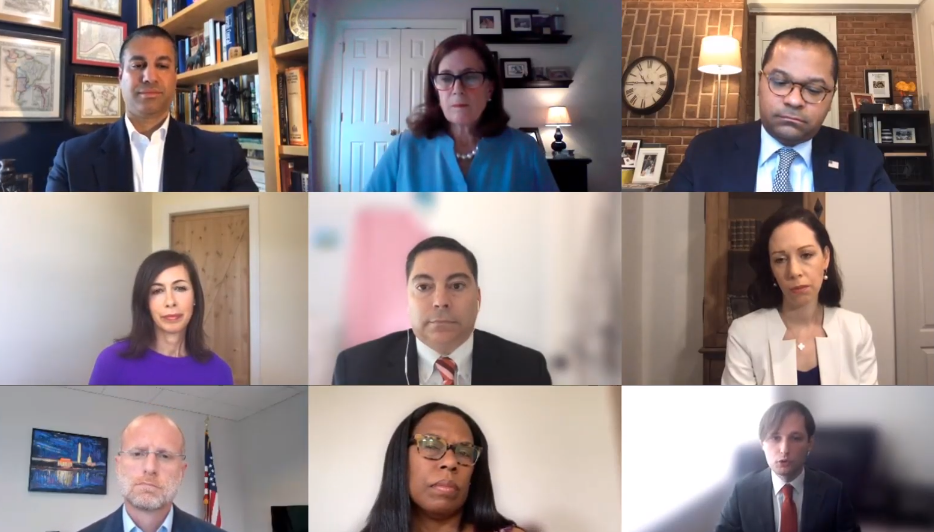FCC (Almost) OKs Tier-Based Leased Access Rates
The smarter way to stay on top of the multichannel video marketplace. Sign up below.
You are now subscribed
Your newsletter sign-up was successful
The FCC either did or didn't vote to allow cable operators to charge leased access providers a tier-specific rate, but it was unclear what the vote meant.

That came on a Report and Order Thursday (July 16) at the FCC's public, virtual, July meeting. But because there were three "concurrences" in the item, which are sort of "yes' votes, the item has been held in abeyance until the General Counsel's office confirms that three concurrences equate to approval.
That is after commissioner Jessica Rosenworcel asked for that clarification since she was not sure the substance of the item would take effect.
The two Democrats concurred because they have issues with the item's conclusion that the leased access rules are constitutionally suspect. Republican Brendan Carr, who has no issue with that conclusion. concurred because he thought the FCC should have taken a different approach that better responded to the "serious constitutional question" raised by the rules.
Carr later clarified that his was a partial dissent, and that he did approve the item. Rosenworcel still asked for a confirmation. FCC chairman Ajit Pai said that would happen, but given Carr's explanation, said the item had, indeed, passed.
Leased access is the requirement that cable operators over a certain size lease a certain number of channels to unaffiliated programmers at regulated rates.
Specifically the order, if it was approved Thursday, "adopts a tier-based leased access rate calculation that reflects the actual value of leased access channels and changes to cable rate regulation."
The smarter way to stay on top of the multichannel video marketplace. Sign up below.
It also codifies that the maximum fee a cable operator can charge will be an annual calculation based on contracts from the previous year.
“With this action, the Commission simplifies the calculation of maximum leased access rates by adopting a tier-based formula that better reflects the value of a particular channel to the programmer seeking carriage." said commissioner Geoffrey Starks. "I agree with commenters that this modification should make compliance less burdensome, particularly for small cable operators.”
The order finds that the justification for leased access rules have been eroded by marketplace changes. Starks said he hardly thinks the FCC has done the its due diligence, arguing that leased access protections for diverse programming are still needed.
While the FCC's Republican majority is in apparent agreement with cable operators that such changes warrant a review of the constitutionality of the entire leased access regime--as the order confirms--"leased access requirements are contained in a specific statutory mandate from Congress, and therefore, the Commission will not eliminate its rules implementing the statute at this time," the order said.
Cable ops: Leased Access Rate Regs Need to Go
Back in June 2019, the FCC voted unanimously--with a couple of partial dissents--to tweak and review the rules.
“We applaud the Commission’s action recognizing that the constitutionality of the leased access regime is in substantial doubt in today's competitive marketplace and revising its rate formula to mitigate the burdens the regime imposes," said NCTA-The Internet & Television Association. "The leased access regime is a relic of the past that continues to burden cable operators' speech based on a video marketplace that no longer exists. In today's world, commercial video providers have innumerable ways to reach consumers and consumers can access an incredible variety of programming on an ever-expanding number of platforms.”
Contributing editor John Eggerton has been an editor and/or writer on media regulation, legislation and policy for over four decades, including covering the FCC, FTC, Congress, the major media trade associations, and the federal courts. In addition to Multichannel News and Broadcasting + Cable, his work has appeared in Radio World, TV Technology, TV Fax, This Week in Consumer Electronics, Variety and the Encyclopedia Britannica.

